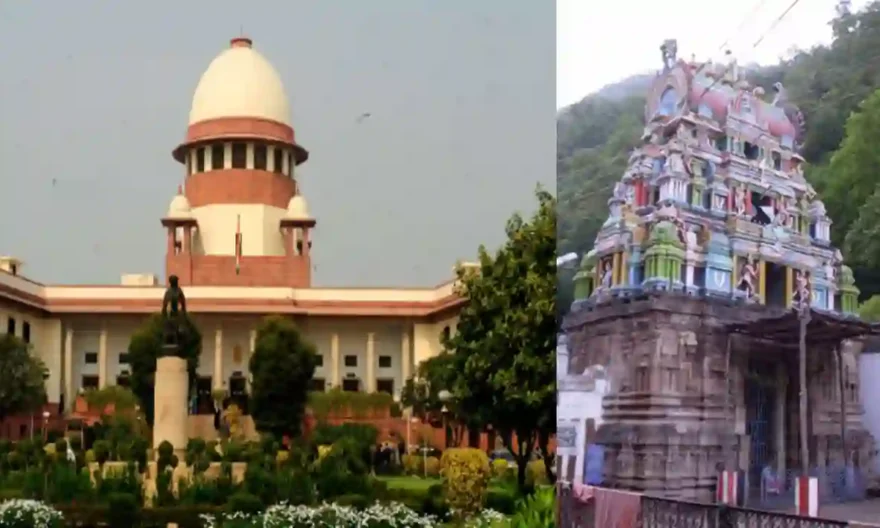
The Supreme Court on Friday declined to hear the Andhra Pradesh Government’s appeal against the High Court’s order, which held that the State’s decision to appoint an ‘Executive Officer’ to control and manage the affairs of Ahobilam Temple in Kurnool is a violation of Article 26(d) of the Constitution and affects the Mathadipathi’s right of administration.
The State’s petition was heard before a Bench comprised of Justices S.K. Kaul and A.S. Oka. The Bench was perplexed as to why the State should intervene in temple matters.
It has been made clearly plain by a Division Bench of the Andhra Pradesh High Court that the Temple is a crucial component of the Ahobilam Mutt, which is located in Tamil Nadu.
The State Government’s argument that the temple and Mutt were separate legal entities was rejected. The Court stated that just because the Mutt and the Temple are located in different states; one in Tamil Nadu and the other in Andhra Pradesh does not mean that they are no longer connected.
The High Court has reached the conclusion that the Temple and the Mutt were founded and run by the Mathadipathis since the beginning of time based on historical documents, literary works, and archaeological facts.
The High Court stated that because the State does not have wide authority to supervise and oversee Mutt, interference in its business should only be made where there are good reasons to do so, such as poor management. No material in the record supports the nomination of the Executive Officer in light of the case’s facts, the Court noted.
The Division Bench further noted that Mathadipathis, whose appointment was neither vested in nor exercised by the Government, has been in charge of the Temple since the Endowments Act of 1927.
The original petitioners’ (devotees’) argument was that the State Government lacks the authority to name the Executive Officer for either the Mutt or the Temple under the AP Charitable and Hindu Religious Institutions and Endowments Act.
Chapter V of the Act was cited in support of the argument that the Maths should be granted a unique status and the authority to administer their own affairs. The State Government acknowledged that there is no practise for the nomination of a non-hereditary trustee to the temple in 2014, it was further noted.




